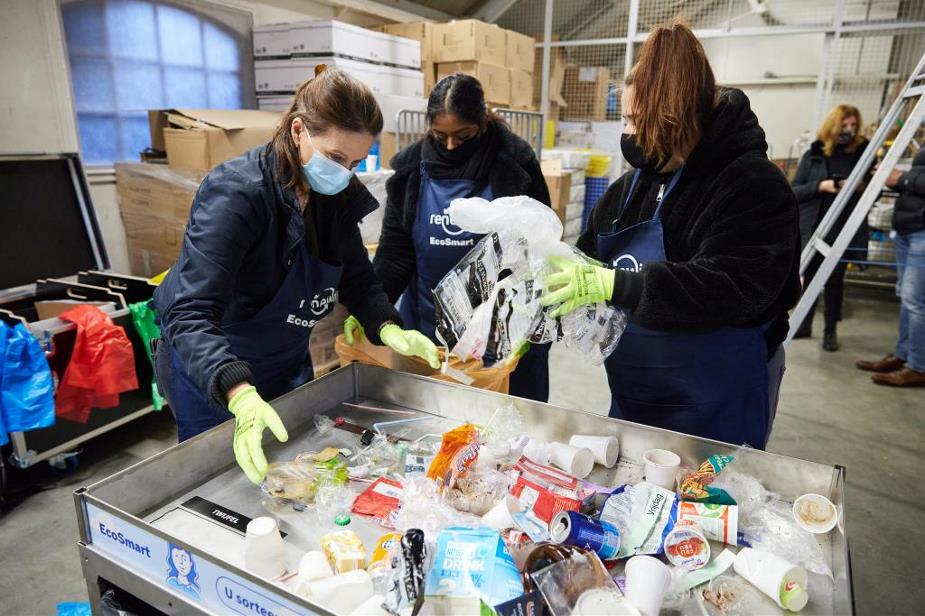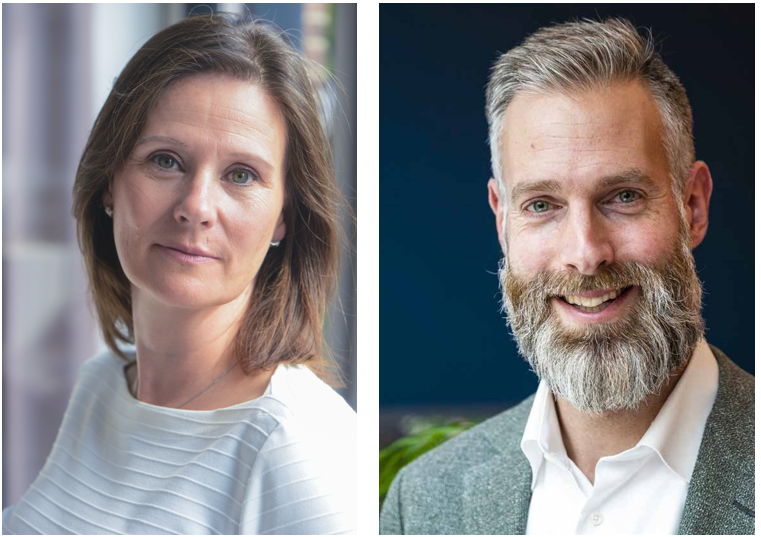Two THUAS studies nominated for RAAK award
25 October 2022
The RAAK award is the leading award in the Netherlands for practice-oriented research at universities of applied sciences. Every year, the SIA chooses a winner from six nominated projects. This year, two of the six...

The RAAK award is the leading award in the Netherlands for practice-oriented research at universities of applied sciences. Every year, the SIA chooses a winner from six nominated projects. This year, two of the six projects were conducted at THUAS, a great acknowledgement! Now that we have focused research within the Centres of Expertise, we can develop more effectiveness in high-quality research. Read our conversation with Rutger Leukfeldt and Rachel Kuijlenburg, the research leaders of the two nominated projects, about the human factor in cybersecurity and circular operations.
Imagine you are a researcher at a university of applied sciences, and you are looking for funding for great research with social added value. Then you can knock on the door of the Regieorgaan SIA (Netherlands Institute for International Cooperation). This body awards what are known as RAAK grants to universities of applied sciences’ research projects. Once a year, SIA nominates six of these subsidised projects for the RAAK award that is presented at the SIA conference.
This year, two nominations went to The Hague University of Applied Sciences: one for the 'Circular operations: facility management and ecology in balance' project led by Rachel Kuijlenburg and one for the 'Cyber resilience: a municipal offensive to prevent cyber crime victimisation' project led by Rutger Leukfeldt and Remco Spithoven of Saxion. Rachel is a lecturer in the Facility Management degree programme and the master's programme in Integral Business Administration and is a researcher at the Mission Zero Centre of Expertise. Rutger is professor of Cybercrime & Cybersecurity and director of the Cyber Security Centre of Expertise.

Large part of the Netherlands
'A municipal offensive to prevent cyber crime victimisation.' That sounds quite massive. Rutger: ‘THUAS and Saxion conducted this research in a consortium with many individual municipalities and existing partnerships between municipalities and security alliances. We are talking about more than 150 municipalities, so a large part of the Netherlands. Cyber resilience is very much alive among municipalities. They say: “We have to do something, but we don't know what.” So, there is a dire need for interventions.’
From entrepreneurs to money mules
The research consortium of THUAS and Saxion helped the municipalities by focusing on four target groups. Two of these - entrepreneurs and so-called money mules - were the subject of the THUAS research. In both cases, the human factor is the key element. Rutger: ‘We paired entrepreneurs with buddies who increased their cyber resilience. And we reached tens of thousands of young people - who often had debts - who responded to a provocative fake advertisement, promising that they could earn money quickly. All they had to do was use their bank card to launder criminal money. We had faked that ad. When they clicked on the link, they did not come into contact with a criminal but were presented with our clear, informative text on their screen, including referrals to debt assistance agencies.’
The R-ladder
Rachel Kuijlenburg took a different approach to the needs of social partners with her research on circular operations. But the need for appropriate interventions is as much present in her research as it is in Rutger's. Rachel: ‘I have previously conducted research at the Custodial Institutions Agency on the impact of nutrition on detention and on the relationship between cleaning and detention. If you ask about sustainability in central government, there are always policies. But people often do not know how they should shape that policy tactically and operationally. There is also a distinct lack of action among them.’
A circular business is grafted onto the strategies of circularity in the R-ladder. The R at the top costs the least in raw materials, the R at the bottom the most. ‘Then it goes from refuse and rethink to reduce, reuse, repair, refurbish, remanufacturing, repurpose and recycling. Which R can you link to the policy level, which to the tactical level and which to the operational level? And how do you do that? How do you prevent waste? How do you ensure that raw materials only become waste as a last resort? Before we could answer those questions in a management model, we did 100-per cent measurements on 10,000 kilos of waste. Where in the operations does this waste become raw material? Where does it suddenly become waste? And how can you prevent that?’
No more excuses
The research led to a management model with protocols. ‘We applied these to many case studies. We are convinced that, after more than two years of research, we have linked so many case studies to the protocols that we can use them to remove people's hesitation to act within central government. With this model, there is no longer any excuse to not work on sustainability.’
Nice momentum
The SIA recognises the high quality of practice-oriented research in both projects. Whether the nomination at the SIA conference on 17 November next will lead to the award is anyone's guess. Rutger: ‘In any case, a nomination like this shows society that we do extremely relevant quality practice-oriented research with many partners from society and with students.’ The nominations provide great momentum to go public with that research.
Arie Verhoef